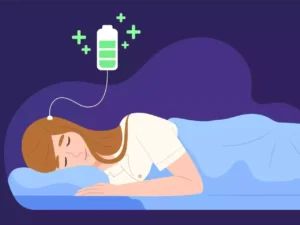
The basic need of the human body refers to the fundamental requirements that ensure our physical well-being and survival. These needs are vital for maintaining good health and functioning at an optimal level.
Nutrition: Adequate intake of essential nutrients, vitamins, and minerals through a balanced diet is crucial for energy production, growth, and overall bodily function. The body requires a balanced intake of nutrients, including carbohydrates, proteins, fats, vitamins, and minerals, obtained from a varied and healthy diet. These nutrients are essential for energy production, tissue repair, growth, and overall health.
Nutrition is vital for the human body as it provides the necessary nutrients essential for growth, repair, energy production, and overall health. A well-balanced diet that includes a variety of nutrients is crucial for proper bodily functions. Here are the essential nutrients and their roles in the body:
Carbohydrates They are the body’s primary energy source. Carbs are broken down into glucose, which provides immediate energy for various bodily functions. Sources include fruits, vegetables, whole grains, and legumes.
Proteins are essential for building and repairing tissues, supporting immune function, and serving as enzymes and hormones. Sources include meat, poultry, fish, eggs, dairy, legumes, nuts, and seeds.
Healthy fats are necessary for providing energy, supporting cell growth, protecting organs, and aiding in the absorption of fat-soluble vitamins (A, D, E, and K). Sources include avocados, nuts, seeds, olive oil, fatty fish, and some dairy products.
These are essential for various bodily functions, including maintaining healthy skin, supporting vision, boosting the immune system, and aiding in metabolic processes. Sources include fruits, vegetables, dairy, whole grains, and fortified foods.
Minerals are important for bone health, fluid balance, nerve function, muscle contraction, and many other functions. Examples include calcium, iron, potassium, magnesium, and zinc. Sources include fruits, vegetables, dairy, meat, nuts, and seeds.
It is crucial for maintaining proper hydration, regulating body temperature, aiding in digestion, transporting nutrients, and eliminating waste products. Water is essential for all bodily functions.A balanced diet that includes a variety of foods from different food groups ensures that the body receives all the essential nutrients it needs for optimal health. Additionally, moderation and portion control are important aspects of maintaining a healthy diet.
Hydration: Water is vital for hydration, facilitating digestion, regulating body temperature, and carrying nutrients to cells. Water is crucial for the body’s functions. It helps regulate body temperature, aids in digestion, carries nutrients and oxygen to cells, and removes waste products. Staying adequately hydrated is vital for overall health.
Regulation of Body Temperature Water helps regulate body temperature through processes such as sweating and evaporation, which are essential for cooling the body during physical activity or in hot environments.
Transportation of Nutrients Water assists in the transportation of nutrients and oxygen to cells throughout the body. It helps carry essential substances in the bloodstream to various organs and tissues.
Removal of Waste Products Water is involved in the elimination of waste products and toxins from the body through urine, sweat, and bowel movements. It supports kidney function by helping to filter waste and maintain electrolyte balance.
Joint Lubrication Adequate hydration supports the lubrication of joints, which reduces friction and helps prevent joint pain and stiffness.
Maintenance of Body Functions Water is essential for proper digestion, absorption of nutrients, and the production of saliva, which aids in breaking down food for digestion.
It’s important to maintain proper hydration levels throughout the day. While individual water needs vary based on factors such as age, sex, activity level, and climate, a general guideline is to aim for about 8 cups (64 ounces) of water per day. However, this amount can fluctuate and may need adjustment based on individual circumstances.
Factors such as exercise, hot weather, illness, or pregnancy may increase the body’s need for water. Additionally, consuming water-rich foods like fruits and vegetables can contribute to overall hydration levels.
Signs of dehydration include dry mouth, dark-colored urine, dizziness, fatigue, and reduced urine output. To stay adequately hydrated:
Drink water regularly throughout the day, even when not feeling thirsty.
Monitor your urine color; pale yellow to clear urine indicates proper hydration.
Consider carrying a reusable water bottle to remind yourself to drink water regularly.
Be mindful of factors that increase water loss, such as sweating during exercise or exposure to hot weather.
Maintaining proper hydration is essential for optimal bodily functions, overall health, and well-being.

Sleep: Sufficient restful sleep is necessary for the body to repair and rejuvenate itself, enhancing concentration, memory, and overall cognitive function. Adequate rest and quality sleep are essential for the body to recover, repair tissues, consolidate memories, and regulate hormones. Lack of sleep can impact mood, cognitive function, and overall health.
Restoration and Repair During sleep, the body undergoes processes that help repair tissues, muscles, and cells. It’s a time when the body can recover and rejuvenate.
Memory Consolidation Sleep plays a critical role in memory consolidation and learning. It helps the brain process and store information obtained throughout the day, aiding in better recall and learning.
Regulation of Hormones Sleep influences the balance of hormones that control appetite, metabolism, growth, stress, and other bodily functions. Lack of sleep can disrupt these hormonal balances, impacting overall health.
Immune Function Adequate sleep supports a healthy immune system, helping the body fight off infections and illnesses. It contributes to the body’s ability to defend against viruses and bacteria.
Mental Health and Emotional Well-being Sleep is closely linked to mental health. Sufficient sleep is crucial for emotional regulation, mood stability, and overall mental well-being. Chronic sleep deprivation can contribute to mood disorders like anxiety and depression.
Physical Performance and Recovery: Quality sleep is essential for optimal athletic performance, muscle recovery, and coordination. It can affect physical endurance, strength, and overall athletic abilities.
The recommended amount of sleep varies by age, but in general, adults should aim for 7-9 hours of quality sleep per night. However, individual sleep needs may vary based on factors like lifestyle, health, and genetics.
To improve sleep quality:
Maintain a consistent sleep schedule by going to bed and waking up at the same time every day, even on weekends.
Create a relaxing bedtime routine to signal your body that it’s time to wind down, which might include reading, taking a warm bath, or practicing relaxation techniques.
Ensure your sleep environment is comfortable, quiet, and conducive to restful sleep, with a comfortable mattress and pillows and a cool, dark room.
Limit exposure to screens (phones, computers, TVs) before bedtime, as the blue light emitted can interfere with the production of the sleep hormone melatonin.
Prioritizing good sleep hygiene and making sleep a priority in your daily routine can significantly impact overall health, cognitive function, and quality of life. If you’re experiencing persistent sleep issues, it’s advisable to consult a healthcare professional for guidance and support.

Exercise: Regular physical activity promotes cardiovascular health, strengthens muscles and bones, improves flexibility, and helps maintain a healthy weight. Regular exercise and movement are necessary for maintaining a healthy body. Physical activity supports cardiovascular health, muscle strength, flexibility, and overall well-being.
Exercise strengthens the heart and improves circulation, reducing the risk of heart disease, high blood pressure, and stroke.
Weight Management Regular physical activity helps burn calories, manage weight, and build muscle mass, contributing to better body composition.
Enhanced Muscle Strength and Endurance Exercise, especially resistance training, helps build and maintain muscle strength and endurance, supporting overall physical performance.
Better Mental Health Physical activity releases endorphins, which can improve mood and reduce feelings of stress, anxiety, and depression. It also promotes better sleep and cognitive function.
Bone Health Weight-bearing exercises, such as walking, running, and strength training, help maintain bone density, reducing the risk of osteoporosis and fractures.
Improved Energy Levels Regular exercise can increase energy levels and combat feelings of fatigue by improving overall stamina and endurance.
Reduced Risk of Chronic Diseases Regular physical activity is associated with a lower risk of developing various chronic conditions such as type 2 diabetes, certain cancers, and metabolic syndrome.

Personal hygiene: Maintaining cleanliness through practices such as bathing, dental care, and handwashing helps prevent the spread of diseases and promotes overall well-being. Maintaining personal hygiene, including regular bathing, handwashing, and clean living conditions, is crucial to prevent the spread of infections and diseases. Washing hands frequently with soap and water for at least 20 seconds helps remove germs and prevent the spread of infections. Hand hygiene is crucial, especially before eating, after using the restroom, and after coughing, sneezing, or touching potentially contaminated surfaces.
Brushing teeth at least twice a day and flossing daily help prevent tooth decay, gum disease, and bad breath. Regular visits to the dentist for check-ups and cleanings are also important.
Regular bathing or showering helps remove dirt, sweat, and bacteria from the body, keeping the skin clean and preventing body odor. Use of soap and shampoo helps in thorough cleaning.
Regular washing and maintenance of hair help keep it clean and prevent scalp-related issues. Trimming or styling hair as needed also contributes to personal cleanliness.
Trimming nails regularly, keeping them clean, and avoiding nail biting help prevent the buildup of dirt and bacteria that can cause infections.
Wearing clean clothes and changing them regularly, especially after physical activity or sweating, helps maintain personal hygiene and prevent skin issues.
Properly using and cleaning toilets, wiping from front to back to prevent the spread of bacteria, and maintaining cleanliness in the bathroom area are important aspects of personal hygiene.
Covering the mouth and nose with a tissue or elbow (not hands) when coughing or sneezing helps prevent the spread of germs to others.
Proper management and disposal of menstrual products, as well as maintaining cleanliness during menstruation, are crucial for women’s health and comfort.
Maintaining good personal hygiene not only prevents illness and the spread of infections but also promotes self-confidence and social well-being. It’s essential to cultivate these hygiene habits as part of a daily routine to ensure good health and cleanliness.
Shelter: A safe and comfortable living environment protects the body from extreme weather conditions, provides privacy, and promotes overall mental and physical well-being. The body requires a safe and stable environment to thrive. Protection from extreme temperatures, access to clean air, and a safe living space are vital for health.
Meeting these basic needs supports the body’s functionality and plays a vital role in our overall health and quality of life.

